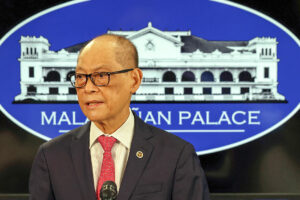PROJECTS benefiting from incentives offered by the Corporate Recovery and Tax Incentives for Enterprises (CREATE) Law have generated investment valued at P414.3 billion, Finance Secretary Benjamin E. Diokno said.
“From August 2021 to December 2022, total investment capital from approved priority activities with incentives under CREATE has reached P414.3 billion. This covers priority activities above P1 billion,” Mr. Diokno said in a statement after conducting an economic briefing in Washington, DC.
Mr. Diokno and other economic managers are in Washington for the spring meetings of the International Monetary Fund and World Bank Group.
“We invite you to take a look at our Strategic Investment Priority Plan, which identifies priority industries, projects, and activities that can be granted fiscal incentives under the CREATE Act,” Mr. Diokno told potential investors at the briefing.
The plan lists activities eligible for tax incentives under the CREATE Act.
Mr. Diokno said that infrastructure spending is “front and center” of the government’s growth strategy.
“We are committed to reverse the decades-long underinvestment in infrastructure: from 2001 to 2015, average infrastructure spending was only at 2% of gross domestic product (GDP),” he said.
The government is planning to spend 5-6% of GDP on infrastructure.
In March, the National Economic and Development Authority Board, chaired by President Ferdinand R. Marcos, Jr., approved 194 flagship infrastructure projects worth P9 trillion.
The bulk of the 194 projects are related to physical connectivity as well as irrigation, water supply, and flood management.
“The government is determined to sustain high infrastructure investment for the next six years through the public-private partnership (PPP) mechanism, which will enhance energy, logistics, transportation, telecommunications, and water infrastructure,” Mr. Diokno said.
“Now, the spectrum of industries that foreign investors can participate in has grown wider than ever before. The economic liberalization measures that the Philippine government has enacted in recent years have opened up key high-growth sectors to international participation,” he added.
Mr. Diokno noted that solar, wind, hydro and tidal energy projects are now open to full foreign ownership. — Luisa Maria Jacinta C. Jocson
